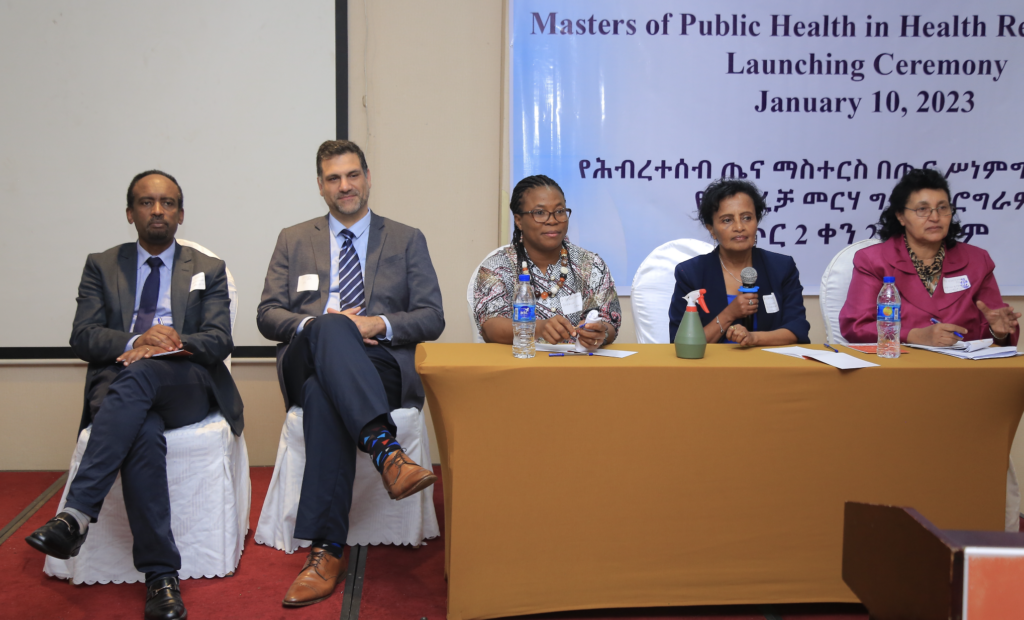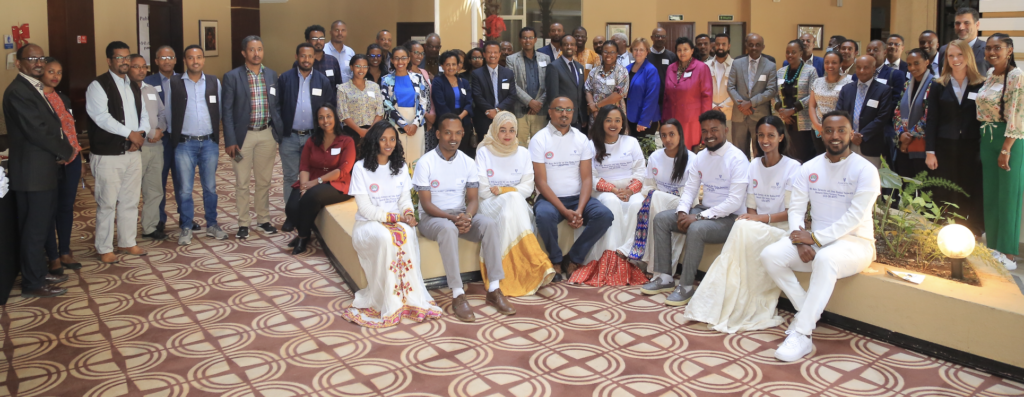Reexamining the Ethical Permissibility of Dual Role Consent
Institutional Obligations for Pragmatic Clinical Trials
Data Sharing in Pragmatic Clinical Trials
New Human Embryo Models Require New Guidelines for Their Ethical Use in Research
When the current guidelines regarding the ethical use of human embryos in research were developed, scientists couldn’t imagine the possibility of stem cell-derived embryo models (SEMs) that recapitulate different stages of embryonic development. But now that SEMs exist, new regulations and policies that permit their ethically appropriate research use need to be developed according to the paper, “Human Stem Cell-derived Embryo Models: Towards Ethically Appropriate Regulations and Policies,” published today in Cell Stem Cell.
“The similarity of the stem cell-derived embryos to natural embryos raise many ethical questions. It’s not obvious if they should be considered solely as lab models, or as akin to actual embryos in moral status and legal provisions,” said the paper’s co-author Dr. Jeremy Sugarman of the Johns Hopkins Berman Institute of Bioethics. “Ethical issues loom over rapid advances in embryo modeling and we need to take action now to ensure ethically appropriate scientific ingenuity and process.”
Sugarman outlined a number of broad areas with open questions pertaining to the use of SEMs in research, including:
Technical
- How similar are SEMs to natural embryos? Can they develop a brain, or be implanted?
Ethical
- Do SEMs have moral status? Is it ethically appropriate to derive SEMs? To use them for research?
Regulatory
- Do existing laws, policies and legal definitions apply to SEMs? Are existing laws sufficient to regulate them? Do existing oversight bodies have authority over SEM research? Are new laws needed?
Sugarman points out that the 14-day rule that forms the cornerstone of many current embryo research policies and regulations, not permitting their use 14 days after fertilization, is complicated in regard to SEMs since no fertilization event exists from which the counting of days can begin.
“Existing legal definitions of ‘human embryos’ should be adapted to clarify which current provisions apply to SEMs and appropriate oversight must be established for this research,” said Dr. Sugarman.
“It is crucial that the scientific community continues to promote widespread discussion of experimental possibilities in order to inform the public about latest advances in this field, apprehend societal concerns, and propose specific guides for researchers. This kind of leadership is all the more needed as research progress dares human imagination, confounds ethical intuition and challenges the application of existing policies.”
How Abortion Restrictions Can Influence Research
In the year since the Supreme Court’s decision in Dobbs eliminated the nationwide right to abortion, consequences of heightened restrictions — including increased maternal morbidity and mortality and deepening socioeconomic and racial inequities — have quickly come into view. Less apparent have been the ethical, legal, and practical implications these restrictions have for research involving people who could become pregnant during research and research staff.
In the paper, “Ethical research when abortion access is legally restricted,” published today in Science, a group of researchers led by Dr. Jeremy Sugarman, MD, of the Johns Hopkins Berman Institute of Bioethics say limited access to abortion can pose risks to clinical research participants, potentially compromising the scientific and social value of some research.
“Ambiguous abortion laws and fear of criminal prosecution raise profound concerns and could deter those who might become pregnant from participating in clinical research,” said Sugarman, the Harvey M. Meyerhoff Professor of Bioethics and Medicine at the Berman Institute and Johns Hopkins School of Medicine.
“Those contemplating the development and implementation of policies pertaining to abortion should also consider the potential negative impact on the ability of researchers to advance science that can improve the health and well-being of those who are or may become pregnant and their fetuses.”
The paper outlines a number of implications for clinical research arising from new laws restricting abortion passed in almost half of U.S. states since the Dobbs ruling. For example, participants might be unable to legally obtain an abortion to mitigate harms resulting from research. Alternatively, a pregnancy test required for participation might document an early pregnancy, placing the participant at risk of legal action if the pregnancy results in an early miscarriage and would otherwise have gone unnoticed.
Clinical research staff also might face legal risks, such as prosecution for referring a participant to an abortion provider out of state. And research could be compromised, both by people hesitating to enroll and by leaving researchers hesitant to obtain rigorous data on pregnancy.
The paper also includes points to consider for researchers as they plan clinical studies in the post-Dobbs environment. In research site selection and management, this includes making provisions for legal abortion access for participants. In study design and implementation, points include safeguarding participant confidentiality, obtaining informed consent that includes risks involved with legal restrictions on abortion, and ensuring that institutional review boards have made determinations related to risks or issues associated with legal abortion.
“Stakeholders involved in research with participants who could become pregnant should explicitly consider the points in the paper, both to minimize the risks to participants and staff and to help safeguard the scientific and social value of research,” said Sugarman. “If on careful examination it seems implausible to safely conduct the proposed research at a particular site, consideration should be given to conducting the research elsewhere.”
JHU Collaborates with Addis Ababa University to Launch Research Ethics Master’s Program

In January 2023, faculty and staff of the Johns Hopkins University-Addis Ababa University Research Ethics Training Program (JHU-AAU RETP) gathered in Addis Ababa, Ethiopia, for a symposium and launch of the Research Ethics Specialty Track within the AAU Master of Public Health (MPH) program.
Over the past three years – with support from the U.S. National Institutes of Health, Fogarty International Center (Grant # R25TW001604) and the leadership of Dr. Adamu Addissie (AAU) – the JHU-AAU RETP has focused its efforts on curriculum development and approvals; strengthening capacity of AAU faculty to teach new courses in bioethics through training and mentorship; raising awareness for bioethics and research ethics through outreach, public seminars and creation of a MPH-wide Responsible Conduct of Research (RCR) course; engaging government leaders in Ethiopia to support ongoing efforts to advance research ethics networks and policies; and piloting of the new MPH Specialty Track.
“We are delighted to have this opportunity to work together to generate the first bioethics-related Master’s training program in Ethiopia,” said Joseph Ali, faculty of the JHU Berman Institute and Bloomberg School of Public Health and co-director of the JHU-AAU RETP. “The success of the program depends greatly on the vision and support of key leaders at AAU and Nationally, and the dedication of AAU and JHU faculty and staff. We are thankful for the support and commitments.”
The official program launch in January celebrated these formative efforts, shared emerging needs and opportunities for bioethics in Ethiopia and the region, and recognized the matriculation of a cohort of nine students into the Master’s program. The event, which was attended by over 60 people, was chaired by Prof. Yeweyenhareg Feleke and included speeches from distinguished guests of the Ethiopian Ministry of Education, AAU administration, and a keynote delivered by Dr. Paulina Tindana (University of Ghana; Accra, Ghana). A panel that included guest speakers Dr. Erisa Mwaka (Makerere University College of Health Sciences; Kampala, Uganda), Dr. Violet Naanyu (Moi University; Eldoret, Kenya), Dr. Yimtubezinash Woldeamanuel (AAU; Addis Ababa, Ethiopia) and Dr. Telahun Teka (National Research Ethics Board; Addis Ababa, Ethiopia) was also organized to share reflections on the future of research ethics in Africa. This was followed by a presentation by Joseph Ali on global efforts to establish mechanisms for benchmarking ethics oversight of health-related research. In the days following, students had the opportunity to begin to share their hopes for their Master’s training and receive feedback from the program and invited guests on early thesis research concepts. Information about local and global bioethics networks and resources were also shared.
In addition to the symposium and meetings with students, the team met with AAU program faculty for a curriculum workshop, and hosted a meeting – chaired by Dr. Andrea Ruff (JHU Bloomberg School of Public Health) – which gathered Institutional Review Board (IRB) leaders from across Addis Ababa for a discussion on IRB capacity strengthening and networking.
While the COVID-19 pandemic has challenged international collaborative training programs, through creative adaptations, personal commitments and supportive institutions, the JHU-AAU-RETP has established a foundation for what it hopes will be decades of successful bioethics training to advance high quality research and practice. On the final evening, while the team gathered for dinner, Dr. Tindana offered the well-known proverb: “If you want to go fast, go alone. If you want to go far, go together.”
Events throughout the week were coordinated by Lealem Wagaw (AAU) and Elise Wilson (JHU). For more information about the JHU-AAU RETP, please contact [email protected] or [email protected].

Digital Contact Tracing for Pandemic Response
Research Ethics Consultation Service
Seminar Series
Stephanie Morain, PhD, MPH
Cynda Rushton Named to Nurse Researcher Hall of Fame
Berman Institute faculty member Cynda Rushton has been selected for induction into the Sigma Theta Tau International Honor Society of Nursing (Sigma) 2019 International Nurse Researcher Hall of Fame. Professor Rushton was chosen for significant contributions to the nursing profession and her sustained research efforts to improve the care and health of people, specifically in the areas of aging and nursing ethics.
As Anne and George L. Bunting Professor of Clinical Ethics at the Berman Institute and the Johns Hopkins School of Nursing, Rushton, PhD, RN, FAAN, focuses on moral suffering and resilience of clinicians, and designing cultures of ethical practice. In 2014, she co-led the first-ever National Nursing Ethics Summit to prepare a blueprint for nursing ethics in the 21st century, and in 2016, an initiative to help nurses transform morally distressing experiences into moral resiliency.
Her most recent work has been designing, implementing, and evaluating the Mindful Ethical Practice and Resilience Academy (MEPRA) to train nurses challenged with patient suffering, resource allocation, and other ethical situations to respond with integrity. She is author and editor of a new book Moral Resilience: Transforming Moral Suffering in Healthcare (Oxford University Press).
“Ethical practice is the bedrock of nursing, and we are at a pivotal junction in health care that demands that we reorient toward our moral compass,” says Rushton. “My work has been supported by so many peers and mentors along the way, which has helped make this honor a reality. I am humbled and grateful to have been selected as part of this distinguished group of nurses.”
Rushton will be inducted at Sigma’s 30th International Nursing Research Congress in Canada, July 2019.
A version of this article was first published by the JHSON.